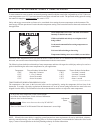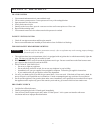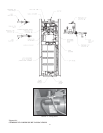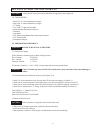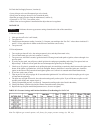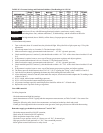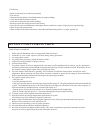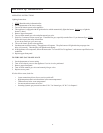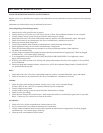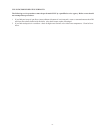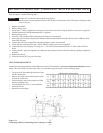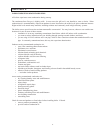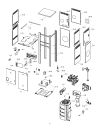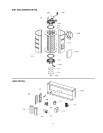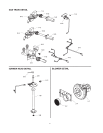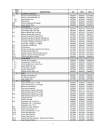
SECTION R: MAINTENANCE
SUGGESTED MINIMUM MAINTENANCE SCHEDULE:
Regular service by a qualified service agency and maintenance must be performed to assure maximum boiler operating
efficiency.
Maintenance as outlined below may be performed by the owner.
Yearly (Beginning of each heating season):
1. Annual service call by qualified service agency.
2. Visually check top of vent for soot. Call service person to clean. Some sediment at bottom of vent is normal.
3. Visually inspect venting system for proper function, deterioration or leakage.
4. Check that boiler area is free from combustible materials, gasoline, and other flammable vapors and liquids.
5. Check for and remove any obstruction to the flow of combustion or ventilation air to boiler.
6. Follow pre-start-up check in Section N.
7. Visually inspect burner flame. Should see light blue flame, with some orange at flame edge.
8. Check operation of safety devices. Refer to manufacturer’s instructions.
9. Follow oil-lubricating instructions on circulator. Over-oiling will damage circulator. Water-lubricated
circulators do not need oiling.
10. Visually inspect condensate drain piping for proper operation or deterioration (if appropriate). Check for plugged
condensate trap. Use cleanout plug to clear trap.
11. To avoid potential of severe burn, DO NOT REST HANDS ON OR GRASP PIPES. Use a light touch - return
piping will heat up quickly.
12. If mixing valve does not seem to be working, the spring and thermostat may need to be replaced. Call a qualified
service technician.
13. Check for piping leaks around circulators, mixing valves, relief valves and other fittings. Repair, if found. DO NOT
use petroleum based stop leak.
Daily:
1. Check that boiler area is free from combustible materials, gasoline, and other flammable vapors and liquids.
2. Check for and remove any obstruction to the flow of combustion or ventilation air to boiler.
Monthly:
1. Check for piping leaks around circulators, mixing valves, relief valves, and other fittings.
If found, repair at once. DO NOT use petroleum-based stop leak compounds.
2. Visually inspect burner flame.
3. Visually inspect venting system for proper function, deterioration or leakage.
4. Check air vents for leakage.
5. Check the hose fitting/orifice on the blower. Make certain that orifice is not blocked by grease, dirt or any other
debris. If necessary, use a thin wire to clean up the orifice.
Periodically:
1. Check relief valve. Refer to manufacturer’s instructions on valve.
2. Test low water cutoff, if used. Refer to manufacturer’s instructions.
3. Visually inspect condensate drain hose for proper operation or deterioration (if appropriate). Check for plugged
condensate trap. Use cleanout plug to clear trap.
4. Clean screen in vent termination and air intake.
64



